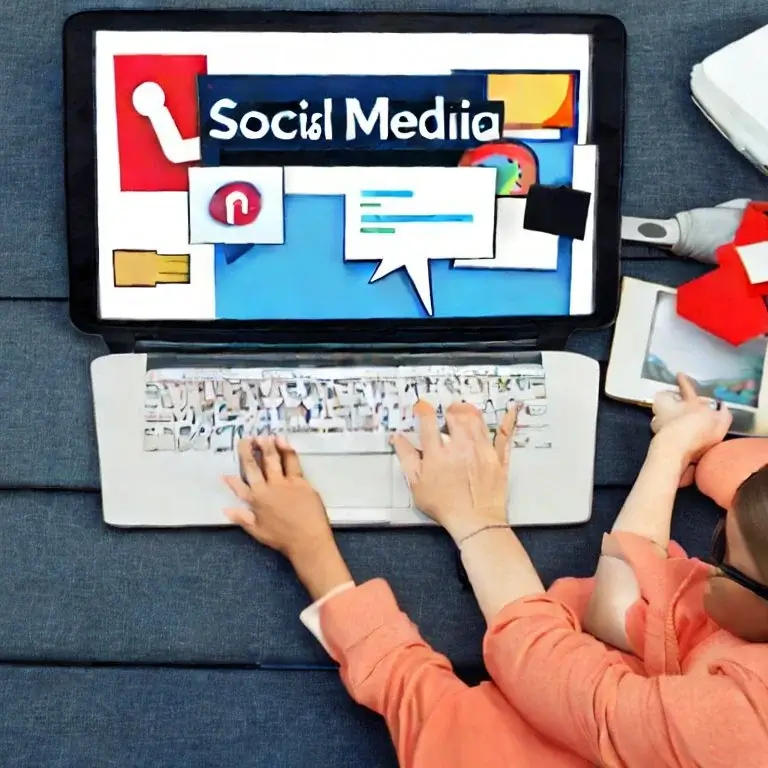Evolving digital content marketing trends are forcing us to come up with pre-trained employees. There are many uses too but lets focus on how we can get benefit in teaching.
Social media simulators can be used in teaching in a variety of ways. Some examples include:
- Professional development: Teachers can use social media simulators to learn about the latest trends, technologies, and best practices in education, as well as to stay up-to-date with the latest developments in their field.
- Role-playing: Students can use a social media simulator to act out different scenarios, such as how to respond to negative comments or how to handle online harassment.
- Digital literacy: Students can learn about online safety, privacy, and digital citizenship through a social media simulator.
- Media analysis: Students can use a social media simulator to analyze and evaluate the impact of different types of content on social media.
- Marketing and advertising: Students can learn about marketing and advertising strategies by creating and managing simulated social media accounts for fictional businesses.
- Collaboration: Students can use social media simulators to collaborate on group projects and assignments, such as creating a social media campaign for a fictional product.
- Language learning: Students can use social media simulators as a tool to practice and improve their language skills.
- Research: Students can use social media simulators to conduct research on topics such as online behavior, communication patterns, or the spread of misinformation.
- News and current events: Students can use social media simulators to follow and analyze the news and current events, and to discuss the impact of social media on society.
- Creative writing: Students can use social media simulators as a tool for creative writing, such as creating a fictional social media account for a character in a story or creating a social media campaign for a fictional event.
- Career preparation: Students can use social media simulators to learn about different career opportunities, such as social media management or digital marketing, by simulating the day-to-day tasks and responsibilities of those roles.
- Ethical considerations: Students can use social media simulators to explore ethical considerations related to social media, such as data privacy, consent, and the spread of misinformation.
- Hands on learning: Social media simulators can allow students to engage in hands-on learning experiences, by allowing them to experiment with different strategies and techniques without fear of failure or real-world consequences.
- Public speaking: Students can use social media simulators to practice public speaking skills by creating videos, live streaming, and hosting virtual events.
- Critical thinking: Students can use social media simulators to develop critical thinking skills by analyzing and evaluating the credibility and reliability of information found on social media.
- Entrepreneurship: Students can use social media simulators to learn about entrepreneurship by creating and managing simulated social media accounts for fictional business.
- Digital art: Students can use social media simulators as a tool for digital art, such as creating digital illustrations, animations, and other forms of media that can be shared on social media.
- Community Building: Social media simulators can be used to create virtual communities, where students can connect and collaborate with peers from around the world, fostering a sense of belonging and belongingness among students.
- Cultural understanding: Social media simulators can be used as a tool to expose students to different cultures, by connecting them with people from around the world and allowing them to explore different perspectives and ways of communicating.
Social media simulators are versatile tools that can be used in many different ways to enhance students’ learning experiences, they allows students to experiment, test, and practice different strategies, and in a safe environment, while providing an authentic and engaging way of learning.

very informative article.
Pretty! This has been a really wonderful article. Being a teacher, it helps a lot.
I just like the helpful information you provide in your articles
I just like the helpful information you provide in your articles
Great information shared.. really enjoyed reading this post thank you author for sharing this post .. appreciated
There is definately a lot to find out about this subject. I like all the points you made
I really like reading through a post. Also, thank you for allowing me to comment!
I truly appreciate your technique of writing a blog. I added it to my bookmark site list and will
I like the efforts you have put in this, regards for all the great content.